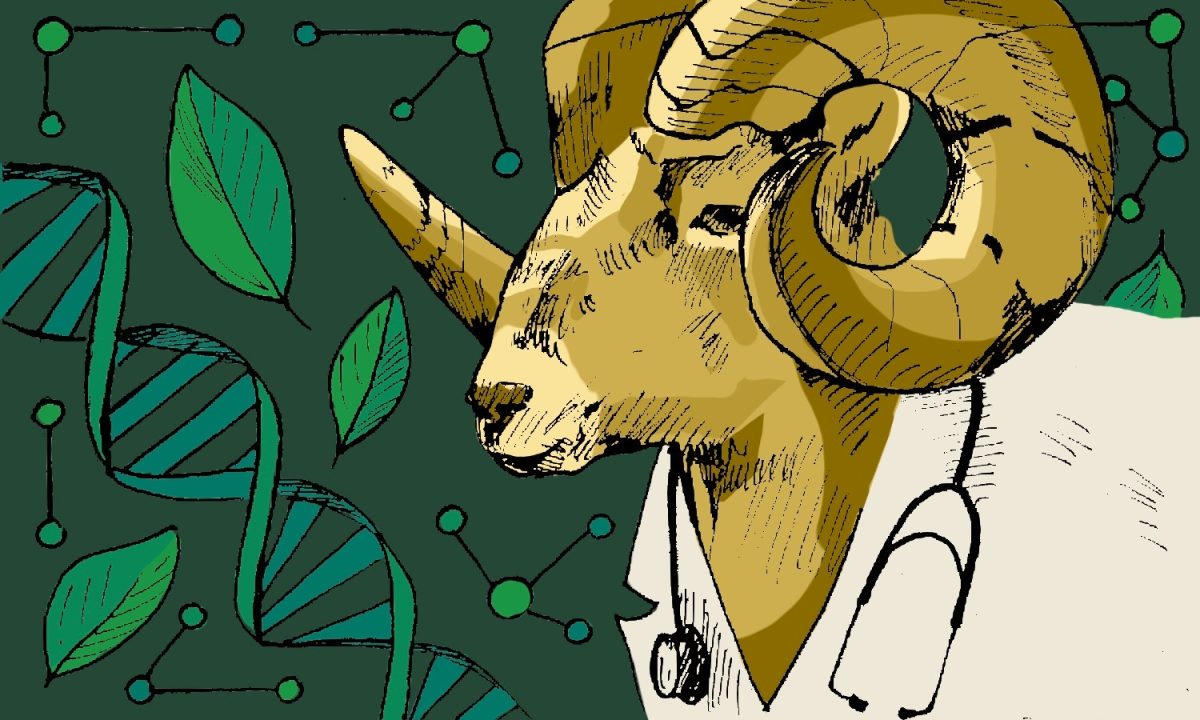Climate policy is an ever-changing and nuanced issue that touches every aspect of daily life. What we wear or buy, how we heat our homes — every decision has an impact.
The School of Global Environmental Sustainability is representing Colorado State University at the 2023 United Nations Climate Change Conference in the United Arab Emirates Nov. 30 to Dec. 12. This year is the 28th Conference of the Parties to the Convention, or COP28.
CSU is represented over a broad spectrum of topics. A CSU exhibit Dec. 10-11 will highlight a suite of climate research and education activities.
“Our exhibit has a fashion and health focus,” said Aleta Weller, senior research and engagement officer at CSU’s School of Global Environmental Sustainability. “But the broader body of CSU participation at COP(28) has a wider focus with lots of people participating in other areas of expertise.”
The exhibits focus on fashion and health and highlight Sonali Diddi, an associate professor of design and merchandising at the School of Global Environment Sustainability, among others. Diddi’s research looks at how youth interact with sustainable clothing consumption and what improvements can be made in the industry.
A focus on sustainable fashion and health is not the only topic CSU brings to the table. Hussam Mahmoud, professor of infrastructure at CSU and co-chair of the National Academies of Sciences, Engineering and Medicine New Voices, co-organized a session titled The Role of Academics in Climate Policy Advice to be hosted Saturday, Dec. 9.
“My research group at CSU is focused on sustainable and resilient infrastructure with a focus on critical systems, including healthcare,” Mahmoud said. “The presentation will include our work at CSU on health care system resilience and the development of socio-physical models to capture the resilience of complex systems.”
In addition, Mahmoud will discuss the ongoing work of the New Voices climate group on how health care resilience can be used to define vulnerability to heat waves. This work demonstrates the work of the New Voices climate group and highlights the role of young academics in addressing climate challenges.
Research from CSU extends well beyond campus, influencing policymakers across the globe. The opportunity to present the work of not only senior scientists but also new scientists breaking into their respective fields is important to sustaining youth involvement in climate policy.
A major barrier to attending a conference like this is funding; this makes it essential that universities financially support their students to attend such high-level, impactful conferences, said Jacob VanderRoest, Ph.D. candidate and director of the graduate student chapter of the Student Sustainability Center at the CSU School of Global Environmental Sustainability.
“For inspiring involvement, highlighting the voices of students who are already involved is key,” VanderRoest said. “Hearing about student involvement within the field of climate action from students themselves can be much more compelling and engaging. So I’d recommend that universities provide opportunities for students who are already involved to speak in front of other students about their climate involvement.”
In his speech titled “Youth Engagement on College Campuses: How to Spark Efficacious Involvement,” VanderRoest discussed the need for student involvement in climate science and policy.
“Everything that I spoke about in this talk was from personal experience,” VanderRoest said. “I have been working on climate action and promoting sustainability with high school and college students for the past four years, so I drew upon those personal experiences when discussing youth engagement.”
The conference highly values education and youth input, as per Article 6 of “United Nations Framework Convention on Climate Change” and Article 12 of the Paris Agreement. An example of this in action is the Youth Climate Report, “a multilinear, interactive, database documentary film project,” according to its website.
“Ultimately, the youth will be most impacted by the decisions made in climate discussions,” VanderRoest said. “Thus, sharing youth voices helps remind negotiators and policymakers why climate change is a pivotal issue to address.”
Discussions on the transition to clean energy and follow-up discussions from COP27 in Egypt on damage and losses are included in COP28. The impact of clean energy on reducing damage from natural hazards is clear, and it is great to see both being discussed at the same conference, Mahmoud said.
“CSU has always had a great presence at COP and, in my opinion, is one of the leading institutions in the U.S. in the area of climate change,” Mahmoud said. “So for CSU to be present in the world stage on climate is unsurprising.”
CSU has several climate initiatives in both research and education. The CSU delegation will discuss and present many of these activities at COP28, Mahmoud said. Topics will include climate issues related to vet care, civil infrastructure, solar radiation, agriculture workers, soil biodiversity, resilient forests and the fashion industry.
Climate ethics, climate justice, leadership development and recent CSU climate initiatives focusing on undergraduate education will be discussed by the delegation.
“World leaders are here, and they are listening,” Mahmoud said. “Therefore, the message from youth and young scientists should be clear and evidence-based. The more rigorous and inclusive the science, the more influential the message will be and the more world leaders will be willing to engage with younger scientists in these discussions.”
Reach Ivy Secrest at science@collegian.com or on Twitter @IvySecrest.








